The CMP Review — Week of July 28
July 28, 2025
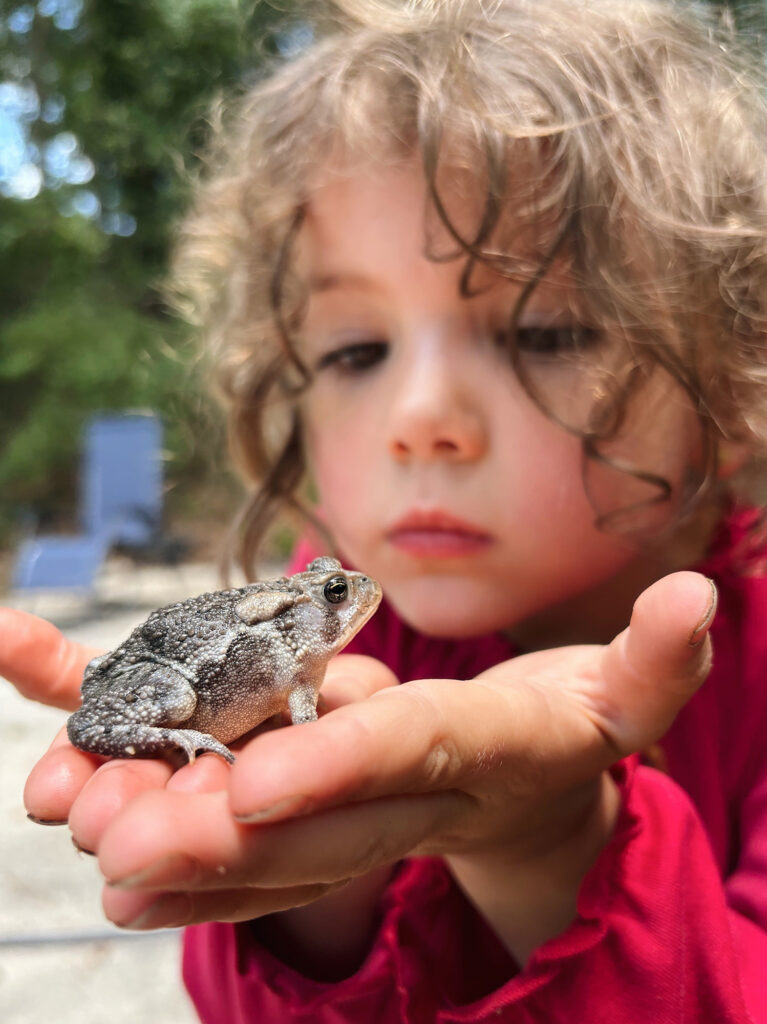
“The main thing, however, is to lead the children to see what is around them, and to enter into the life of all living beings. In this way they will learn to look upon nature as part of the one great scheme under which we all live, doing each our own work for the good of all as best we may; that by our efforts we may both improve ourselves and help others, leaving the results to the Great Being in whom we live and move.” (Fisher, PR10, p. 460)
@tessakeath
July 29, 2025
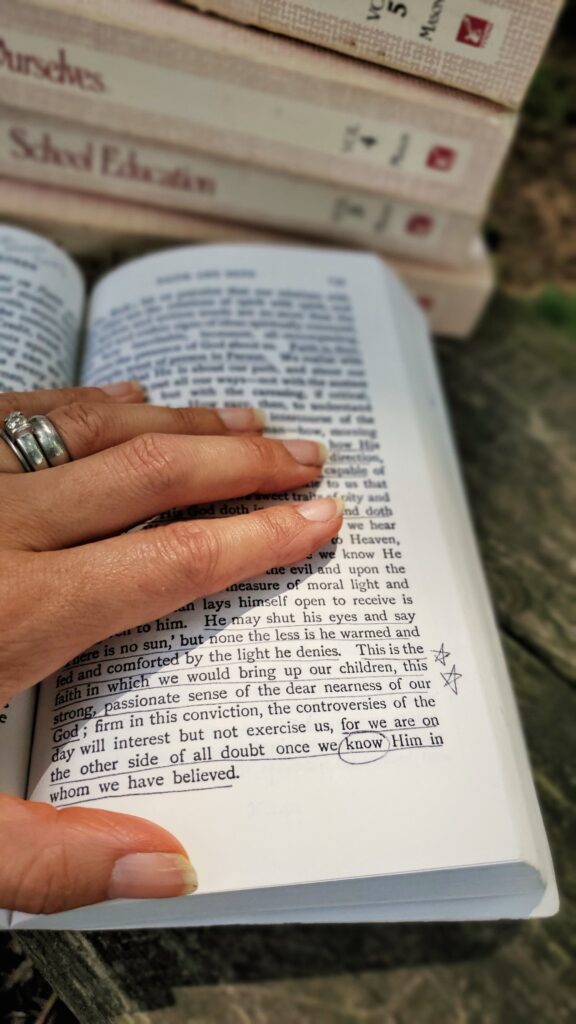
I remember when I first read For the Children’s Sake by Susan Schaeffer Macaulay. I was electrified. There before my eyes was a picture of something wonderful, something beautiful. A way of education that could bring life to my children and life to my family.
Amy Fiedler remembers the moment she first read For the Children’s Sake. She couldn’t put the book down. She too was electrified. It was a book that would change her life. How many of us have a similar story?
After inspiration comes action. We have a beautiful picture in mind of where we want to be. We are determined to master the details, the elements of a Charlotte Mason education that will get us there. The hope for the future keeps us going.
But somewhere along the way most of us run into problems and doubts. Amy Fiedler sure did. It seemed to be an insurmountable obstacle in her path to achieve that wonderful educational life that Susan Schaeffer Macaulay talked about. The details didn’t seem to be working.
Amy tells the story of what happened next in her powerful and moving talk entitled “The Other Side of All Doubt.” She got to the other side. How did she get there, and what did she find? Her talk was recorded earlier this month at the Living Education Retreat. You can hear it now here.
@artmiddlekauff
July 30, 2025
Learn to paint English Lavender using the brush drawing technique.
- Paint the buds (calyx)
- Paint the sepals
- Join the whorls with the stem
- Add detail
- Paint any leaves
Let us know if you give it a try!
Visit our Brush Drawing resource page for more.
@rbaburina
July 31, 2025
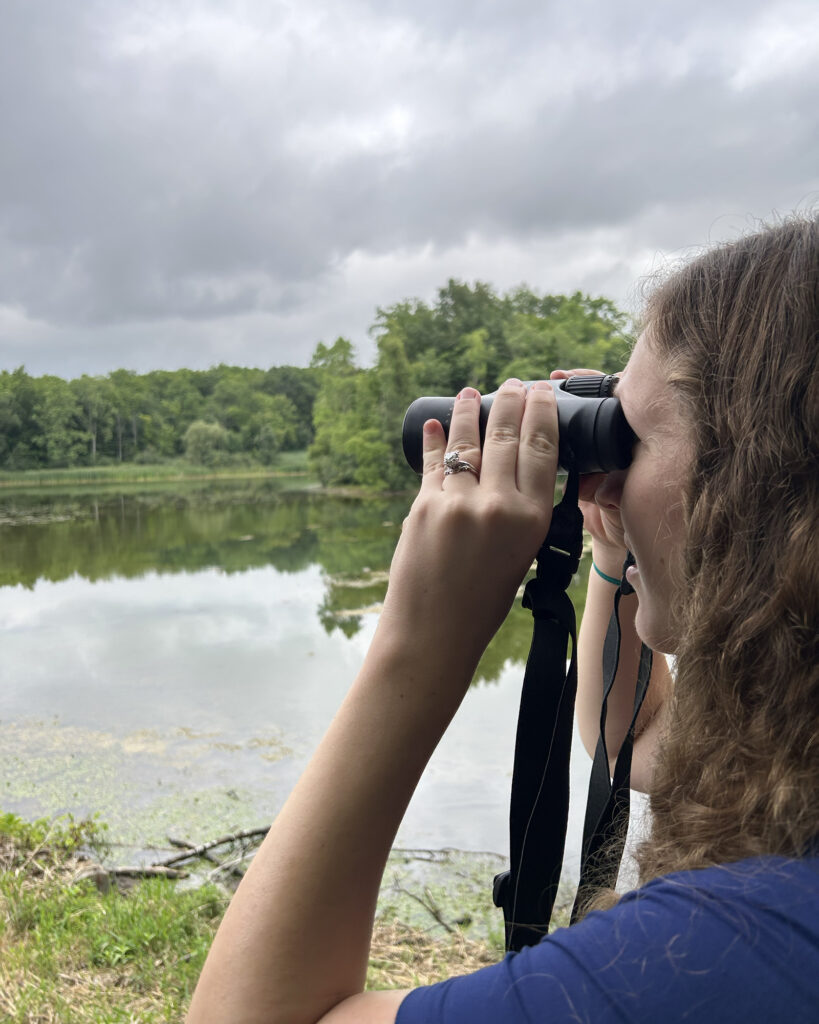
“I have throughout spoken of ‘Relations,’ and not of ‘Interests,’” writes Charlotte Mason, “because interests may be casual, unworthy, and passing.” Hence “Education is the Science of Relations,” not the “Science of Interests.”
As home educators, we can for the most part ensure that the “relations” we cultivate in our children are worthy. We can ensure that the banquet is full of riches. We can even ensure that the relations are not “casual” — we can make these riches a serious part of our curriculum and family routine.
But if the relations we attempt to cultivate in our children are to be more than mere “interests,” they cannot be merely “passing.” And it seems to me we have little control over that. We just have to wait and see if our work of educating has stood the test of time.
On a recent nature walk with my daughter, a CM homeschool graduate, we spotted a bird on the other side of the small lake. I suspected it was a crane, but with a brief and discriminating glance through the binoculars, my daughter calmly declared, “No, it’s a blue heron.” No fanfare, no ceremony, no celebration. Just a little bit of evidence for me, that here was a relation and not an interest.
@artmiddlekauff
August 1, 2025
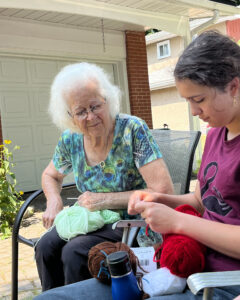

Trading crochet tips and tricks with grandma!
We came for a visit with my mother-in-law. We live about 2200 km away. And grandma and Serafina got to spend a bunch of time crafting together.
Serafina taught grandma how to make a crochet magic circle (which she had never heard of, in her decades and decades lived with crochet hook in hand) and grandma taught Serafina how to make this pretty edging: “you just crochet backwards, from left to right instead of right to left!” If anyone knows what this stitch (pictured in the right image) is called, let me know.
What a blessing to have intergenerational knowledge being passed down.
What do you or your kids do with grandparents or with other lovely seniors who give of their time?
@antonella.f.greco
August 2, 2025
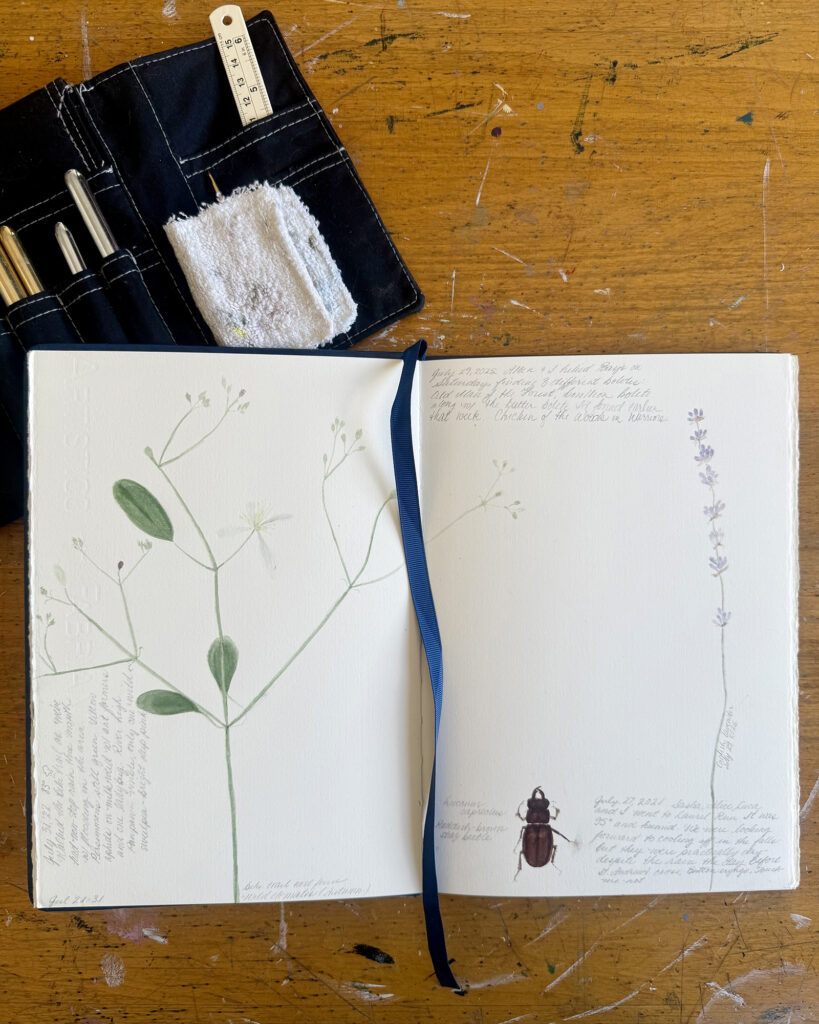
July 21-31 nature journal spread. Hoping for better outdoor weather in August.
How are you faring?
@rbaburina
August 3, 2025
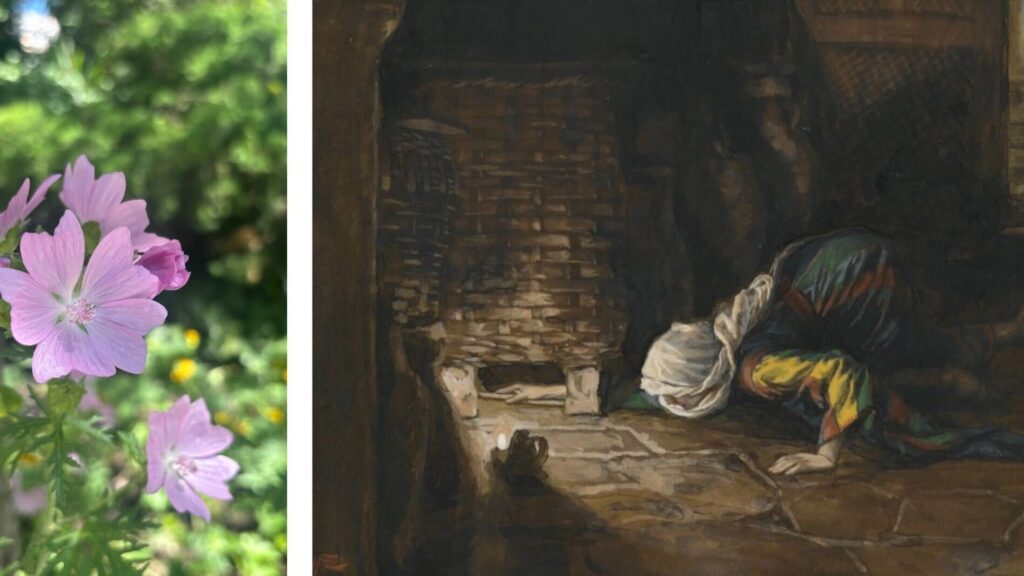
Jesus concludes His parable of the lost sheep by sharing about the “joy in heaven over one sinner who repents.” Then He tells a second parable, this time about a lost coin. He concludes again by stressing the joy in heaven “over one sinner who repents.”
“Is there any significant difference between the two parables?” asks D. L. Bock. “At their most basic level they make the same point. The second parable, however, stresses the search a little more than the first. Recovering a lost sinner can take diligent effort. But the effort is worth it when the lost is found. Sinners should know that God is diligently looking for them. Disciples should diligently engage in the search for sinners on behalf of the Master they serve. Jesus provides a clear example for us to follow. Finding lost ‘sheep’ and missing ‘coins’ is a disciple’s priority. Jesus involved himself with sinners; so should disciples.”
Charlotte Mason also saw a difference between the two parables. Read or hear her unique perspective here.
@artmiddlekauff
🖼️: The Lost Drachma by James Tissot